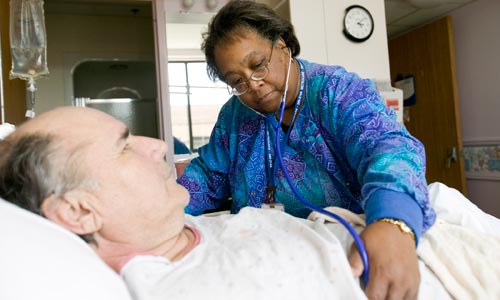 In 2011, Julie Henson was working at her Colorado office when co-worker pulled out her chair from under her. The office prank caused her to fall and hit her head. She may not have thought much of the fall at the time, but later she suffered from headaches, then brain swelling, then a cyst in her brain.
In 2011, Julie Henson was working at her Colorado office when co-worker pulled out her chair from under her. The office prank caused her to fall and hit her head. She may not have thought much of the fall at the time, but later she suffered from headaches, then brain swelling, then a cyst in her brain.
Ms. Henson’s health deteriorated from the traumatic brain injury caused by the fall. Ultimately, she lost the ability to walk, talk, or communicate effectively. Her mother says she is “trapped in her body”, a truly dismal description.
Ms. Henson’s parents placed her in an assisted living facility with skilled staff capable of properly caring for her – or so they thought. The placed a hidden camera in her room to record her daily progress, but when they reviewed the footage they were shocked to find that one of her caretakers sexually abused her on multiple occasions.
The family not only knew this male nursing assistant, they trusted him. I can’t imagine how painful it was for them to watch this man sexually assault their daughter as she lay helpless to stop it.
The man was arrested, pleaded guilty to sexual assault and kidnapping, and was sentenced to 15 years in prison.
40% of TBI cases result from a fall, making slips and falls the leading cause of TBI. TBI is called a “silent epidemic” because it isn’t as obvious as a broken limb. Doctors don’t necessarily associate the wide range of symptoms with TBI, and even its long-term effects, in milder cases, may not be immediately recognized as TBI.
For Ms. Henson, her battle with TBI only led to further victimization at the hands of a caretaker who was supposed to be protecting her.
Nursing home abuse is a growing problem in the U.S. as more families decide that their disabled and elderly loved ones would receive the best care in a nursing home environment. Unfortunately, nursing home residents with TBI and other disabling conditions are often unable to tell anyone about the abuse they are enduring.
If you think your loved one may be the victim of nursing home abuse but is unable or unwilling to tell you, the first step is to remove your relative from the nursing home as soon as possible. We have compiled a database of answers to frequently asked questions about nursing home abuse and neglect and how and when to take legal action. If you have questions about your specific circumstances, we are happy to answer your questions in a confidential setting to help you determine if pursuing legal action is right for you.
AM